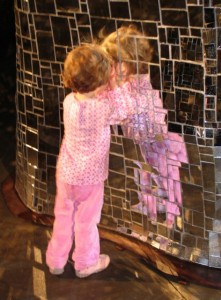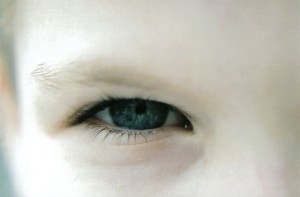The other day I was sitting in my car overlooking Venice Beach, awaiting a meet-up with old friends. I was early so I sat in my car and watched the ocean. While watching, I saw a lot, there were families and tourists enjoying the water and the pier, beautiful waves, lots of birds…and there were two young homeless men who were screaming at each other, jumping around, and inches from a fist fight for over half an hour.
 I sat boxed in my car, windows up mostly because of the chill in the wind. The trashcan on the beach near me was checked at least every ten minutes for cash-value recyclables. When I saw how many people checked the can, I was surprised; but it was when the relatively well-dressed man, the one in running shorts and shoes much like the ones I wear, when he checked the can, that is when I noticed my alarm at my surroundings. Until that moment I didn’t feel connected to where I was, I was simply an observer. Somehow the similarity, that I perceived in the man with the running gear to myself, stirred in me, or rather woke me up to, the feelings of how close I was to danger. The glass windows of my car were all that separated me from this outside world, of Venice Beach, whose harshness was revealing itself in greater magnitude the more I looked at what I saw.
I sat boxed in my car, windows up mostly because of the chill in the wind. The trashcan on the beach near me was checked at least every ten minutes for cash-value recyclables. When I saw how many people checked the can, I was surprised; but it was when the relatively well-dressed man, the one in running shorts and shoes much like the ones I wear, when he checked the can, that is when I noticed my alarm at my surroundings. Until that moment I didn’t feel connected to where I was, I was simply an observer. Somehow the similarity, that I perceived in the man with the running gear to myself, stirred in me, or rather woke me up to, the feelings of how close I was to danger. The glass windows of my car were all that separated me from this outside world, of Venice Beach, whose harshness was revealing itself in greater magnitude the more I looked at what I saw.
continue reading »
|
Posted by
Brenda |
Categories:
Culture & Psychology | Tagged:
homeless,
seagulls |
What is happening in the space between two people?
This is one of the psychological topics which fascinates me the most. It is of interest to the field of psychology because as you can imagine, and likely have experienced, that space is where interactions occur and therein lies the material for all of our life experiences, where we find love, pain, happiness, sadness, where we project our fears and realize our dreams. The “space” between me and another, or for that matter me and my dreams, is where life really happens. And as such, this space has been marveled at long before the invention of psychology and many poets, composers, and visual artists can evoke a sense of it better than any psychology construct will ever decipher.
Yet, it still bears understanding in psychological terms. One psychologist, D.W. Winnicott, called it Potential Space, so named because the first experience of that space is between mother and child and within it the child’s ‘potential’ can be realized. Another, a Jungian Analyst named Nathan Schwartz-Salant, calls it the Interactive Field.
Schwartz-Salant said that between two people there can be a “union” that is “characterized by the creation of something new that is often only glimpsed” by the participants and experienced as a “fleeting” moment where one can feel that space and time have been “suspended” for the moment because a “sense of expansiveness had appeared.” Wow! What a place this potential space, or interactive field, is, where I can I find it? continue reading »
You cannot listen to the news these days, or pick up the phone and talk with a friend and not hear about endings. From natural disasters to personal  losses of loved ones, to an unusually high national unemployment rate, it seems that everywhere I turn I am hearing about (or discussing my own) endings. I suppose this is always true, but to me it seems much more prevalent than it ever has before. Perhaps I am maturing, perhaps there is something going on globally, perhaps both of those and more.
losses of loved ones, to an unusually high national unemployment rate, it seems that everywhere I turn I am hearing about (or discussing my own) endings. I suppose this is always true, but to me it seems much more prevalent than it ever has before. Perhaps I am maturing, perhaps there is something going on globally, perhaps both of those and more.
There is pain associated with endings, and one of my favorite quotes from the movie, The Princess Bride, explains it well:
“Life is pain, Highness. Anyone who says differently is selling something”
I have spent many years with this quote, or ones like it, trying to decipher the hidden message within it that would make it all OK, that would take the sting out of this statement, something that I could think about, if only I could understand it better, to make it make sense. All the while I was asking my head to process it, to guard against it with rational thought because I was afraid it was too painful for my heart to feel. continue reading »
One of my favorite things to do is to travel. I like traveling abroad, I travel for work and for school, I even take a wrong turn intentionally sometimes to travel around other neighborhoods near my home. And my navigational skills are such that I often take wrong turns unintentionally, too. So I have lots of opportunities to feel like I do not know exactly where I am or which steps to take next. I like the way it feels to be rushed into the moment per se , with mundane questions such as ‘am I traveling in a direction that takes me ultimately where I would like to be?’ What I mean by “rushed into the moment” is that at that moment, the moment of making a decision while traveling, many other things to think about fall away and I am stuck in the primacy of staring up at a street sign, or walking down a corridor in a train station. All the meaning of life questions, urgent priorities, mistakes and regrets, aspirations and plans take a back seat to the immediate need of determining a next move. That is what I like about traveling. continue reading »
, with mundane questions such as ‘am I traveling in a direction that takes me ultimately where I would like to be?’ What I mean by “rushed into the moment” is that at that moment, the moment of making a decision while traveling, many other things to think about fall away and I am stuck in the primacy of staring up at a street sign, or walking down a corridor in a train station. All the meaning of life questions, urgent priorities, mistakes and regrets, aspirations and plans take a back seat to the immediate need of determining a next move. That is what I like about traveling. continue reading »
ROAD LESS TRAVELED by Robert Frost
Two roads diverged in a yellow wood
And sorry I could not travel both
And be one traveler, long I stood
And looked down one as far as I could
To where it bent in the undergrowth
Then took the other as just as fair
And having perhaps the better claim
Because it was grassy and wanted wear
Though as for that, the passing there
Had worn them really about the same
And both that morning equally lay
In leaves no step had trodden black
Oh, I kept the first for another day!
Yet, knowing how way leads onto way
I doubted if I should ever come back
I shall be telling this with a sigh
Somewhere ages and ages hence
Two roads diverged in a wood
And I took the one less traveled by
And that has made all the difference
continue reading »
 To me, it always seems like there are times when we want change, and times when we don’t, and yet often those two timeframes coincide more than we think. As a child I used to get terribly frustrated with the local news anchors who would complain to the weatherman, “Larry, when is it going to warm up for spring?” And it seemed like not two weeks later those same anchors would say, “Larry, it’s too hot! When is it going to cool down?” The weather is just one thing that isn’t predictable, and I suppose that is where sayings arise such as, “The only sure things in life are death and taxes.” But, there must be more than death and taxes, mustn’t there? As humans, we are fascinated with the loss and gain of things. All the way back to Greece there were plays and now we have movies of course, mostly concerned with the loss and gain of love, fortune, life, health, soul- you name it, you can find an audience who is interested in knowing whether it is lost or gained. And, the reason we are so curious is because the struggle is something we all face, and so the watching of the saga unfold time and time again somehow doesn’t get old.
To me, it always seems like there are times when we want change, and times when we don’t, and yet often those two timeframes coincide more than we think. As a child I used to get terribly frustrated with the local news anchors who would complain to the weatherman, “Larry, when is it going to warm up for spring?” And it seemed like not two weeks later those same anchors would say, “Larry, it’s too hot! When is it going to cool down?” The weather is just one thing that isn’t predictable, and I suppose that is where sayings arise such as, “The only sure things in life are death and taxes.” But, there must be more than death and taxes, mustn’t there? As humans, we are fascinated with the loss and gain of things. All the way back to Greece there were plays and now we have movies of course, mostly concerned with the loss and gain of love, fortune, life, health, soul- you name it, you can find an audience who is interested in knowing whether it is lost or gained. And, the reason we are so curious is because the struggle is something we all face, and so the watching of the saga unfold time and time again somehow doesn’t get old.
continue reading »
Where does that inner wellspring of creativity live and how can one touch it? In continuing on with our interview of Dr. Allen Bishop, I’d like to discuss his views of how music can become a way for getting in touch with one’s internal essence, or beauty.
Dr. Bishop stated about the way children develop through music and art offerings in school, “mainly it’s a vehicle for developing your interiority, and not your external, social, compliant self.”
He explained his views on how music can be therapeutic personally by giving the example of Beethoven’s transformation. “I’ve used music as a therapeutic modality for myself at different points in my life. I use Beethoven as a model of an individual who has triumphed over adversity and some limitations. Also an individual who shows us that, as Bion says, is always possible to bring beauty to difficult circumstances. Beethoven brought the energy of his deafness in 1802 in the midst of suicide and depression, to reinvent himself. As a composer and musician, his greatest music emerged out of that struggle. I think he points to a kind of a psychology based on a certain kind of acceptance, or what he would call, resignation. He had to resign himself to this loss. Once he could do that, then all the energy was freed and came back in this beautiful way. I think that’s what human beings have to do.”
continue reading »
As Rashin mentioned, we recently interviewed Dr. Allen Bishop, who is one of our professors at Pacifica Graduate Institute, as well as a musician. Further in the interview (from what is written in Rashin’s post last week), we discussed the archetypal qualities of music. By using the term archetypal in this way, we’re talking about things are universal in human experience- not only across cultures, but also across time. Jung used the archetype term to describe a pattern of human experience that is consistent. For example, there are some events like love, loss, birth, death that we all experience at some point. When we experience these events, we feel a connection to a larger human realm. For example, new mothers often report a feeling of being connected to all mothers, to motherhood, to the Great Mother, Mother Earth, etc. In Jungian psychology, we call this the mother archetype and regardless of gender, each human will typically have an experience of it.
With Dr. Bishop we discussed how music can be a form of an invitation to that archetypal, mysterious experience that somehow invokes a desire for connection, and yet it is difficult to articulate why this is so. We discussed how in making music, composers create a gateway to this experience. In our discussion we started talking about those pieces of music that transcend time, and wondering about the composers who created them. continue reading »
|
Posted by
Brenda |
Categories:
Culture & Psychology |
The other day I was riding a bus in San Francisco. I am a tourist, but I try to fit in and belong in the “big city.” To do so, I have become hyper-aware of the rules and I try to follow them, all. Like many public transit systems, younger riders are expected to make way for elder riders, when necessary. On the SF buses, this rule is posted everywhere, and every few stops there is an automated reminder that repeats over the speaker system. On this day, an elderly gentleman boarded the bus after me. He looked at me, and I froze. Although there was a seat available to my left and to my right, I moved over one seat to allow him to take the seat closest the door through which he was entering. I don’t know I did this exactly, I was trying to be nice and respectful, I suppose.
He took it as an invitation to start talking to me. He explained how the first time a young woman had done that was fifteen years ago and he yelled at her and wouldn’t take the seat. “These days,” he said, “I’ll take all the nice things people will do for me.” Aside from “oh,” “yes,” and “yeah” I wasn’t really able to say much for the ten minutes he talked to me (or was it at me?) until my stop. Finally, I broke in mid-sentence and wished him a good day as I hopped off the bus. The smell of his stale breath stayed with me for the two blocks I walked to my destination.
In her book Pyschoanalytic Diagnosis, Nancy McWilliams describes narcissists as, “People whose personalities are organized around maintaining their self-esteem by getting affirmation from outside themselves.”
continue reading »
Do you know what it feels like to be seen? That wonderful exchange between you and a gracious friend or loved one, who really steps outside their own experience to see you in yours, do you know what I mean?
One of my teachers at one of my programs, James Flaherty, asked me an intense question once. He asked, have you noticed how many people in our world are doing out of the ordinary things, just for the sake of being seen? His examples were about recent Olympians who had felt like if they didn’t win gold, all would be for not. And, I extended this notion, what about people who misbehave? For example, sometimes criminals seem to me to be just acting out for the attention they perhaps did not receive as a child. What about the loud, obnoxious person in a restaurant, about which we always say, “Oh, ignore him, he just wants attention.” Yes! That’s exactly what he wants, and perhaps a question we could ask ourselves is why someone needs attention so badly that they must act in uncomfortable or inappropriate ways to receive it. continue reading »
 I sat boxed in my car, windows up mostly because of the chill in the wind. The trashcan on the beach near me was checked at least every ten minutes for cash-value recyclables. When I saw how many people checked the can, I was surprised; but it was when the relatively well-dressed man, the one in running shorts and shoes much like the ones I wear, when he checked the can, that is when I noticed my alarm at my surroundings. Until that moment I didn’t feel connected to where I was, I was simply an observer. Somehow the similarity, that I perceived in the man with the running gear to myself, stirred in me, or rather woke me up to, the feelings of how close I was to danger. The glass windows of my car were all that separated me from this outside world, of Venice Beach, whose harshness was revealing itself in greater magnitude the more I looked at what I saw.
I sat boxed in my car, windows up mostly because of the chill in the wind. The trashcan on the beach near me was checked at least every ten minutes for cash-value recyclables. When I saw how many people checked the can, I was surprised; but it was when the relatively well-dressed man, the one in running shorts and shoes much like the ones I wear, when he checked the can, that is when I noticed my alarm at my surroundings. Until that moment I didn’t feel connected to where I was, I was simply an observer. Somehow the similarity, that I perceived in the man with the running gear to myself, stirred in me, or rather woke me up to, the feelings of how close I was to danger. The glass windows of my car were all that separated me from this outside world, of Venice Beach, whose harshness was revealing itself in greater magnitude the more I looked at what I saw.

 , with mundane questions such as ‘am I traveling in a direction that takes me ultimately where I would like to be?’ What I mean by “rushed into the moment” is that at that moment, the moment of making a decision while traveling, many other things to think about fall away and I am stuck in the primacy of staring up at a street sign, or walking down a corridor in a train station. All the meaning of life questions, urgent priorities, mistakes and regrets, aspirations and plans take a back seat to the immediate need of determining a next move. That is what I like about traveling.
, with mundane questions such as ‘am I traveling in a direction that takes me ultimately where I would like to be?’ What I mean by “rushed into the moment” is that at that moment, the moment of making a decision while traveling, many other things to think about fall away and I am stuck in the primacy of staring up at a street sign, or walking down a corridor in a train station. All the meaning of life questions, urgent priorities, mistakes and regrets, aspirations and plans take a back seat to the immediate need of determining a next move. That is what I like about traveling. 
 To me, it always seems like there are times when we want change, and times when we don’t, and yet often those two timeframes coincide more than we think. As a child I used to get terribly frustrated with the local news anchors who would complain to the weatherman, “Larry, when is it going to warm up for spring?” And it seemed like not two weeks later those same anchors would say, “Larry, it’s too hot! When is it going to cool down?” The weather is just one thing that isn’t predictable, and I suppose that is where sayings arise such as, “The only sure things in life are death and taxes.” But, there must be more than death and taxes, mustn’t there? As humans, we are fascinated with the loss and gain of things. All the way back to Greece there were plays and now we have movies of course, mostly concerned with the loss and gain of love, fortune, life, health, soul- you name it, you can find an audience who is interested in knowing whether it is lost or gained. And, the reason we are so curious is because the struggle is something we all face, and so the watching of the saga unfold time and time again somehow doesn’t get old.
To me, it always seems like there are times when we want change, and times when we don’t, and yet often those two timeframes coincide more than we think. As a child I used to get terribly frustrated with the local news anchors who would complain to the weatherman, “Larry, when is it going to warm up for spring?” And it seemed like not two weeks later those same anchors would say, “Larry, it’s too hot! When is it going to cool down?” The weather is just one thing that isn’t predictable, and I suppose that is where sayings arise such as, “The only sure things in life are death and taxes.” But, there must be more than death and taxes, mustn’t there? As humans, we are fascinated with the loss and gain of things. All the way back to Greece there were plays and now we have movies of course, mostly concerned with the loss and gain of love, fortune, life, health, soul- you name it, you can find an audience who is interested in knowing whether it is lost or gained. And, the reason we are so curious is because the struggle is something we all face, and so the watching of the saga unfold time and time again somehow doesn’t get old.


